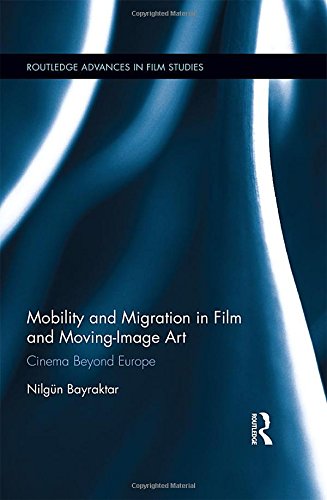

Most ebook files are in PDF format, so you can easily read them using various software such as Foxit Reader or directly on the Google Chrome browser.
Some ebook files are released by publishers in other formats such as .awz, .mobi, .epub, .fb2, etc. You may need to install specific software to read these formats on mobile/PC, such as Calibre.
Please read the tutorial at this link: https://ebookbell.com/faq
We offer FREE conversion to the popular formats you request; however, this may take some time. Therefore, right after payment, please email us, and we will try to provide the service as quickly as possible.
For some exceptional file formats or broken links (if any), please refrain from opening any disputes. Instead, email us first, and we will try to assist within a maximum of 6 hours.
EbookBell Team

4.1
100 reviewsJoining attention to aesthetic experimentation with a focus on sociopolitical concerns, Mobility and Migration in Film and Moving Image Art offers a detailed account of the ways recent cinematic and artistic works engage Europe’s increasingly diverse and complex relationship to migration. With a focus on projects that explore the sociopolitical tensions that have surrounded migration in Europe since the 1990s, Nilgün Bayraktar draws on theories of migrant and diasporic cinema, projected image art, and mobility studies to provide historically situated close readings of films, videos, and cinematic installations that concern migratory networks, infrastructures, and places across Europe, the Middle East, and Africa.
Probing the notion of Europe as a coherent entity and a borderless space that enables free movement, this interdisciplinary study underscores the ways European ideals of mobility and fluidity are deeply enmeshed with immobility, forced migration, illegalization, inequality, racism, and xenophobia. With a specific focus on diverse forms of mobility such as labor migration, postcolonial migration, undocumented migration, and tourism, this book studies the new counter-hegemonic imaginations invoked by the work of established filmmakers such as Ayşe Polat, Fatih Akin, Michael Haneke, and Tony Gatlif as well as video essays and installations of artists such as Kutluğ Ataman, Ursula Biemann, Maria Iorio and Raphaël Cuomo, and Ergin Çavuşoğlu. Challenging aesthetic boundaries as well as national and cultural ones, the works analyzed depict Europe as always complex, heterogeneous, and decentered. Ultimately, Bayraktar demonstrates the degree to which recent transformations in the cinematic form parallel Europe’s concurrent geopolitical transformations: Just as the borders of contemporary Europe have multiplied and become highly flexible and widely dispersed, the aesthetic and institutional borders between cinema and art have also become blurred, producing a new form of moving image art that defies easy categorization.